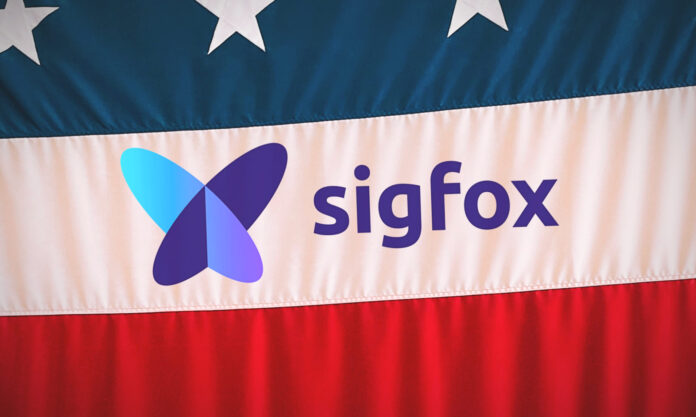Sigfox USA has filed for Chapter 7 bankruptcy in a Delaware bankruptcy court, owing almost $150 million in unsecured debt. The filing, on March 31, is separate from its parent’s receivership and sale in France, which is set to conclude tomorrow (April 5). At the same time, the demise of Sigfox Inc follows directly from Sigfox SA’s decision in France – after its January 26 court application for redressement judiciaire – to terminate the contracts of US staff on account of its “financial distress-situation”. Sigfox USA has around 40-50 employees, across three entities.
The new filing, the latest in a dramatic untangling of French-born unlicensed IoT, is different insofar as its assets in the US, pegged at almost $85 million, will be sold off to pay its creditors. Sigfox said the US activity does not impact the sale of Sigfox in France, which has seen nine companies enter bids to rescue the tech firm (Sigfox SA / Sigfox Corp) – along with its French network (Sigfox France SAS), in some cases – as a debt-free entity.
After the initial deadline for bids passed on February 25, the management team in France has worked with interested parties to review their offers; final versions were submitted last week (also, March 31). A hearing will take place tomorrow (Tuesday, April 5) in Toulouse; a final decision on its corporate “rehabilitation” in France is expected “within the next 10 days or so”, according to Sigfox. Singapore-based IoT house UnaBiz remains the favourite, but it faces competition from Sigfox operator groups Heliot Europe and iWire, plus from France-based LoRaWAN vendor Actility.
French IoT provider Groupe Zekat is also in the running. No joined-bids were received from consortium-like groups with Sigfox interests, such as Sigfox operators, as had been suggested. Bidders also include Buffet Investment Services Consortium, Greybull Capital, OTEIS France, and Sentiens. All of them except for Actility and the Buffet Consortium have entered bids for both the main Sigfox SA technology business and the Sigfox France SAS network.
Since launching in the US in 2015, Sigfox has struggled continually, and failed finally, to knit together the kind of country-wide coverage to deliver comprehensive IoT roaming cases, despite the big talk about point-to-point coverage with enterprise customers. As in Europe, Sigfox’s strategy was to start the infrastructure-build itself, and to sell the network to a private operator as it gained viability and traction; in the end, its loss-making French and US networks were the only ones it failed to sell, ultimately contributing also to the fate of Sigfox SA tech business. Unconfirmed reports suggest Sigfox SA’s 2021 losses were €150 million.
A report in legal news service Law 360 puts Boston-based Sigfox USA’s debt and assets at $149.6 million and $84.6 million, respectively. A joint filing was entered with the Bankruptcy Court for the District of Delaware via Cross & Simon LLP for three separate Sigfox entities in the US. These are Sigfox Inc, Sigfox NIP LLC, and Sigfox USA LLC; most of the $149.6 million debt figure (unconfirmed, but quoted at $50-$100 million) is with the original Sigfox Inc business, along with most of the creditors (100-199), and almost all of the assets ($50-$100 million).
Sigfox-branded operations in Dubai (iWire), Latin America (WND), Poland (Citymesh), Singapore (UnaBiz), and Portugal and Spain (Cellnex) are independent, and in finer fettle; the same is true of Sigfox networks in other markets, retained under different brands, such as with Heliot Europe in northern Europe. Most have pre-empted the collapse, or are spread wide enough, to have contingency plans to run technology and contracts as they are, and to migrate to alternative low-power wide-area (LPWA) tech, as required, depending on the outcome of the sale.
Some, as above, are looking to take charge of the technology, with closer collaboration with the global 0GUN (0G – or Zero-G – United Nations) alliance of Sigfox operators. None of the bids received by CBF Associés, appointed to handle the administrative receivership process by the Toulouse Commercial Court at the end of January, have gone much higher, nominally, than €40 million, Enterprise IoT Insights understands, although no figures have been confirmed or shared.
Sigfox stated: “The other entities of the group (Sigfox Spain, Sigfox Portugal, Sigfox LATAM, Sigfox Dubai, Sigfox Singapore, Sigfox Poland, and Sigfox Inc in the US) are not directly concerned by this proceeding [in France]. However, given the financial distress-situation of the company, management took the decision to terminate the contracts of almost all the Sigfox Inc employees. This decision only concerns Sigfox Inc and has no impact on other Sigfox offices or entities in the rest of the world as they are in a different financial situation.”
Sigfox raised $311 million in five venture rounds in the period to 2016, including $160 million on its last call, making it a mid-decade darling of the IoT startup scene and the original poster child of French IoT – even enjoying ‘unicorn’ status around the time, with a nominal value of $1 billion. Besides the claimed €150 million loss figure during a Covid-ravaged 2021, the company posted a (confirmed) net loss of €90.7 million in 2020, up from losses of €30.8 million in 2019, and losses of €14.9 million in 2018; its revenue in the meantime has slipped to €24.2 million from €43.3 million in 2018 (and €47.45 million in 2017, when its venture capital was still hot in its pockets).

